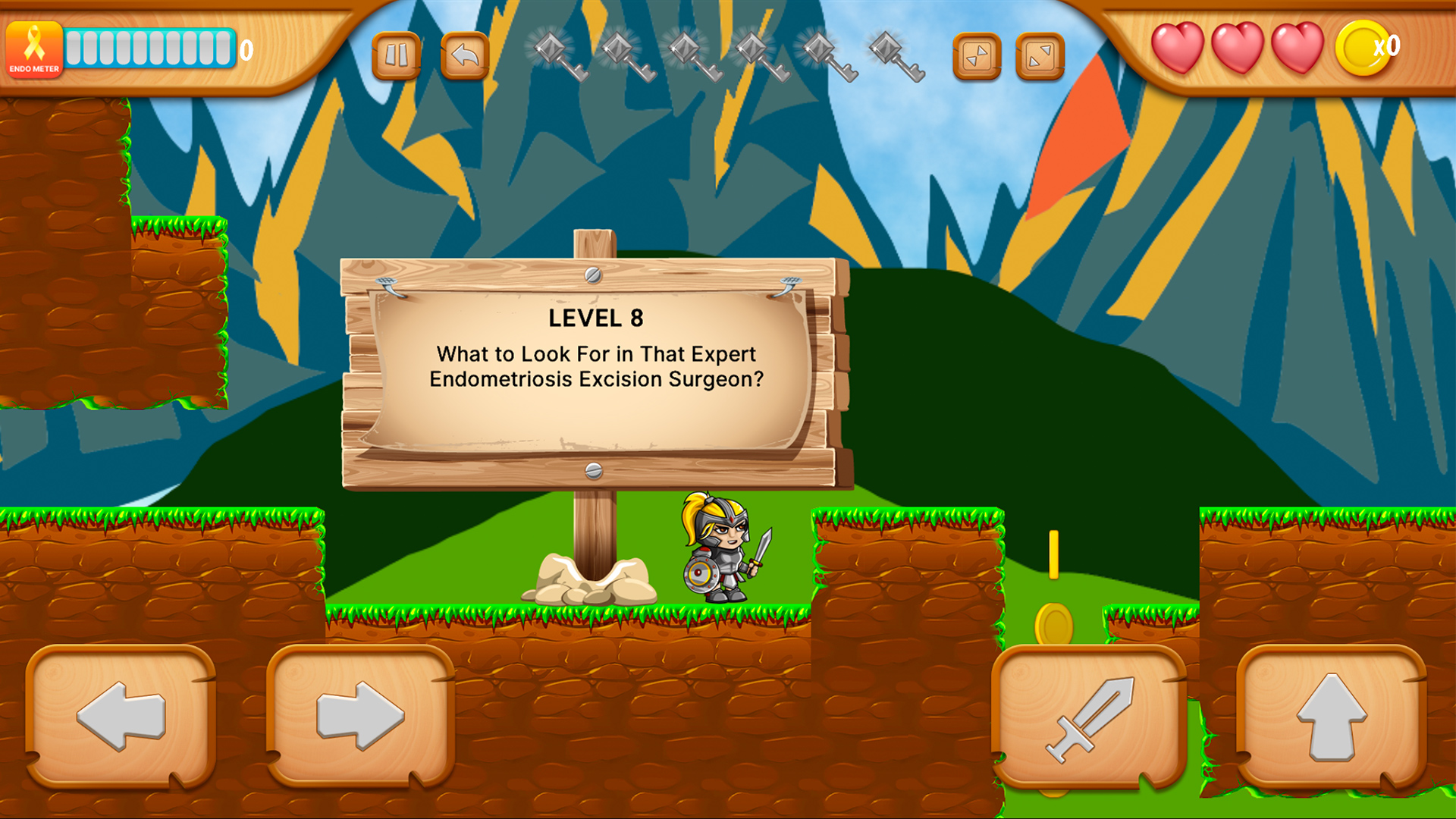
Level 8: What to look for in that expert endometriosis excision surgeon?
Information Booth 1
Identifying excision surgeons to evaluate
Start by researching excision surgeons in your area who specialize in endometriosis.
You can use online directories or search engines to find surgeons who have experience in additional surgical training and training with excision surgery.
You may also want to look for surgeons who are affiliated with a reputable hospital or medical center.
Information Booth 2
Ask for referrals
Ask your gynaecologist or primary care doctor for a referral to an excision surgeon who specializes in endometriosis.
If you don’t get a good referral, you can check trusted surgeon lists, ask support groups, or speak with endometriosis patient advocates to learn about experienced specialists.
Don’t be discouraged if they dismiss this question; not all OBGYNs or primary care doctors are aware of the difference between excision and ablation for endometriosis.
You can also ask for referrals from other healthcare providers, such as a pelvic pain specialist or reproductive endocrinologist.
If this is not available in your country, or your case is too complex for an excision specialist in your country, then they should refer you to a more trained and experienced excision specialist.
We have a handful of endometriosis advocates who are not Pharma-driven or promote certain doctors, so reach out to them too to get the right guidance.
Information Booth 3
Evaluate their credentials
Check the credentials of the surgeons you are considering, including their board certification and training in excision surgery for endometriosis. When looking for training in excision surgery, it will be called a fellowship.
We have incredible advocates who can also advise you on this.
Read reviews from other patients who have had excision surgery with the surgeon you are considering.
Look for reviews that specifically mention their experience with endometriosis excision surgery.
Information Booth 4
Questions you can ask them
Set up a consultation with the surgeon and ask them questions about their experience, success rates, complication rates, and approach to endometriosis excision surgery.
This can help you get a sense of their expertise and whether they are a good fit for you. Some questions to consider asking include:
- How many complex Endometriosis surgeries have you done and do weekly?
- What is your success rate in treating Endometriosis?
- What is your approach to excision surgery for Endometriosis?
- What are the potential risks and complications of the surgery?
- What is the expected recovery time and follow-up care?
Information Booth 5
When to consider travel
Consider travel: If there are no experienced endometriosis excision surgeons in your area, consider travelling to see a specialist who has experience in the procedure.
While travel can add additional expenses, it may be worth it to receive the best possible care for your condition.
Information Booth 6
A second opinion is advisable
Get a second opinion: If you are unsure about a surgeon’s recommendation or treatment plan, consider getting a second opinion from another experienced excision surgeon who specializes in endometriosis.
A second opinion can help ensure that you are making an informed decision about your care.
